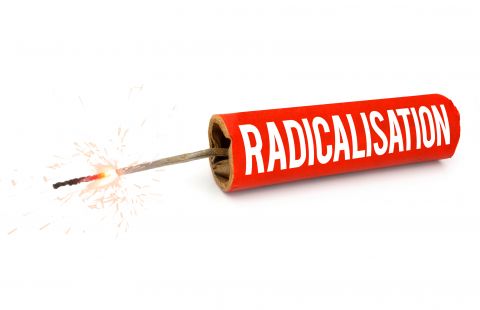Has Rugby Been Radicalised?

“They hate us and we hate them…We want to be brutal…It’s a battle…It’s going to be a war”.
Is this the language of radicalisation, at a moment of high emotion? No, it’s a pre-match interview with England Rugby player Lewis Ludlam before the Scotland v England game.
Ludlam’s employers, the RFU, are engaged in an emphatic programme to promote the game’s values, and encourage youth participation against mounting concerns about safety. As the risk lobby has mobilised itself, the game has sought to articulate its allegedly unique character and benefit. The aim is to demonstrate to parents that Rugby Football is a worthwhile experience for children and one which helps build character.
The RFU is rightly unapologetic about promoting its values. They are featured around the stadium at Twickenham, lest there be any uncertainty. “Respect” and “Discipline” are foremost amongst them. The Code of Conduct for young players extols the Core Values of the sport. These include: “Respect opponents…and all participants”, “Reject…violence”, “Win with dignity”. All of this seems curiously absent from Ludlam’s ill-judged rhetoric.
Is it realistic to think that young players will choose their behaviour influenced more by a poster on the club notice board, than by the emotive public pronouncements of an international player and alleged role model? Schools and clubs battle to promote the game as a vehicle for self-discipline, courage and respect. It becomes a game of snakes and ladders every weekend, when the public face of the game is emphatically different.
Rugby has always regarded itself as sneerily superior to its rival, Association, code of Football. This has been based on the camaraderie of the game, a culture of respect and the lack of requirement to segregate crowds. These were the characteristics of the amateur game, which find themselves increasingly dislocated from the values of its professional successor. The once-unquestioned referee is now subject to a barrage of suggestions, questioning and dispute. This has been exposed by ref-link, and inevitably adopted by the recreational game. Players, coaches and spectators in the school and youth game feel no hesitation or embarrassment in routinely questioning the referee. The cultures of both codes of football are moving closer together. As Soccer seeks to address its excesses, Rugby increasingly drifts away from its historical values. And nobody seems to notice.
There are fewer children playing Rugby in schools than ever before, and fewer adults playing the amateur game. Believers in its value continue to battle against declining appeal. They are supported in this mission by some excellent work by the RFU Community Department in addressing safety concerns and promoting the historic soul of the game.
And systematically undermined by the shop window of the game.